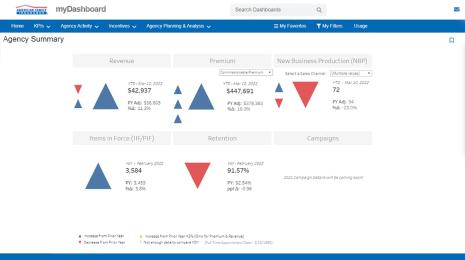Data Diaries: Culture of innovation starts with self-reliant people
Recently I was invited to present at a data conference down here in Australia. As part of the research for my talk, I went online and downloaded dozens of annual reports from many of the companies represented at the conference.
The idea was to get a better perspective on how companies view themselves, and how they would like to be perceived by their team members, customers, and investors.
As I began to take a closer look, it became apparent how the importance of innovation was at the core of each and every company I looked at. It’s no secret that every company wants to be recognised as an innovation-driven business, and most see innovation as a key strategy to staying relevant in today’s fast-moving world. Well, at least that’s what they all say.
But how many of the companies out there are truly innovative? At times the concept of innovation sounds a lot like teenage sex—everyone is talking about it, only a few are doing it, and even fewer are doing it right.
In my search for answers, I went looking for attributes that make companies truly innovative. These traits include what Jeffrey Baumgartner calls “autonomy” in his article The Seven Essential Characteristics of Innovative Companies.
As he put it: “If you give individuals and teams clear goals together with the freedom to find their own paths for achieving those goals, you create fertile ground for innovation.”
How data helps fuel innovation
So what does all this have to do with data and analytics? Could it be that innovative companies have figured out how to leverage their growing mountains of data to find nuggets of information to help them get ahead of their competition?
Yes, that’s certainly true, but the concept is not new as companies have been mining their data for decades using traditional business intelligence tools.
I think there is another key ingredient at play here, one that deals with analysing data at scale. I don’t mean scale as in big data, but scale as in people, and not just highly-skilled data scientist types but all team members.
I like to think of this as a culture of self-reliance, and it’s naturally easier to achieve at a small startup. Continuing to innovate as your company grows can be difficult, though, as size often leads to bureaucratic tendencies and stringent processes that hamper new ideas and autonomy.
What true self-reliance looks like
Self-reliance is built in part on people’s ability to answer their own questions, which is closely related to the concept of self-service analytic, especially in today’s data-driven age.
For many, the idea of self-service business intelligence, where IT opens up a small menu of capabilities for employees, has not yet produced its promised benefits despite having been around for a few years. It is clearly an improvement on the traditional, IT-run report factory, but it is still too limiting to satisfy people’s ever-growing appetite for information.
So far, self-service BI is more like IKEA’s approach to DIY furniture-making. While it allows us to build our own furniture, it’s limited by factory-manufactured building blocks. As a result, we all end up with the same results despite the process being self-service.
This is not enough when it comes to fostering self-reliance, autonomy, and innovation.
An alternative approach is to give curiosity-driven users a new generation of tools, which will enable them to explore their data and answer their own questions on their own schedules.
This new self-reliant world will become the new normal. Unlike assembling pre-build furniture parts, imagine instead 3D-printing a new coffee table that’s one of a kind and will fit perfectly with your style.
Allow exploration, discovery, fast failures
But enabling this new level of self-service analytics and, in turn, letting people ask any and all questions is just one piece of the puzzle. Innovative companies also must provide employees with an environment where creative ideas are encouraged and risk is part of the innovative thinking.
In the world of data, trust is needed to empower employees to access and explore the company’s data without fear of coming up with wrong conclusions.
It’s through this process of discovery without boundaries that employees will uncover ideas for new products, new markets, and new opportunities. Creativity and innovation thrive when organizations trust their team members.
In addition to trust, innovative companies embrace failure as a natural part of doing business. Many successful companies realise that we live in an era when we cannot always get things right the first time.
If employees know that they can fail, they will be more willing to take on risk and explore new and innovative ideas. The key is to fail fast so that everyone can swiftly move on and explore new ideas.
Easy access to data and the ability for many to analyse it can help your company uncover failing initiatives early, saving time and money in the process.
"Failure is an option here. If things are not failing, you are not innovating enough."
Encourage autonomy for teams and individuals
Last but not least, innovative companies must actively encourage individual and team autonomy. Remove the restrictions to access company’s data. Provide tools and governed data that everyone, not just dedicated business analysts, can use.
Independence breeds creativity and curiosity to find answers to challenging questions. It motivates people to seek answers to questions that nobody else thought of asking. Staying engaged without interrupting flow is a personal and autonomous endeavor. Reliance on others to answer your questions breaks this flow.
All in all, the key to a successful, self-reliant culture is to employ intelligent, capable, and creative people and give them the tools and independence to solve problems. The strategy for innovation across your entire company is to uncap the potential of all your employees.
Technology alone cannot answer all our analytical questions. In fact, technology should fade into the background and allow individual human brilliance to shine through. The following video makes an attempt to illustrate how tools are simply there to satisfy human curiosity.
Learn more about building a culture of self-reliance
Data Diaries: A Hiring Guide for Building a Data-Driven Culture
Data Diaries: How VMware Built a Community around Analytics
Data Diaries: Defining a Culture of Self-Service Analytics
Data Diaries: Curiosity, the New Divide
Data Diaries: With Self-Service Analytics, IT Becomes a Partner in the Business
Building a Culture of Self-Service Analytics? Start with Data Sources
In a Culture of Self-Service Analytics, Enablement Is Crucial
Boost Your Culture of Self-Service Analytics with One-on-One Support
MyALPO: How We Gave Every Tableau Server User a Personalized Homepage
MyALPO: What We Learned from Building a Personalized Portal to Tableau Server
MyALPO: How We Built the Search Functionality
Storie correlate
Subscribe to our blog
Ricevi via e-mail gli aggiornamenti di Tableau.








